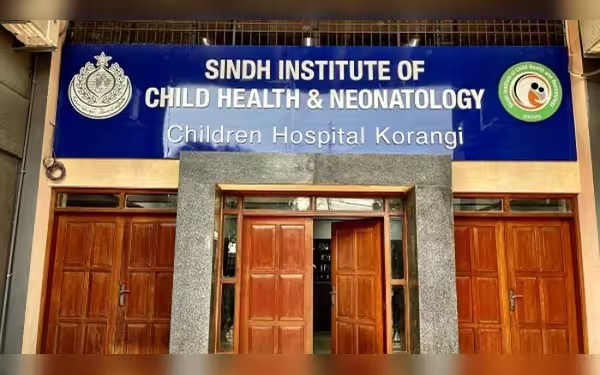Sunday, July 7, 2024 01:40 PM
SICHN Halts Human Milk Bank Project Temporarily
- Human Milk Bank project suspended due to religious decree
- Project aimed to provide essential nutrition to premature babies
- Focus on ensuring safety and well-being of vulnerable newborns
 Image Credits: geo
Image Credits: geoThe Sindh Institute of Child Health & Neonatology temporarily halts its Human Milk Bank project due to a religious decree, emphasizing the importance of cultural sensitivities in healthcare.
The Sindh Institute of Child Health & Neonatology (SICHN) has made the decision to temporarily halt its groundbreaking Human Milk Bank project following a recent religious decree. This project, which was launched with the aim of providing essential nutrition to premature babies, has been put on hold after consultations with religious authorities.
The Human Milk Bank was established to cater to the nutritional needs of premature babies born at 34 weeks or less gestation and weighing less than 2kg. Many mothers of such infants face challenges in producing an adequate amount of breast milk to nourish their babies effectively.
It is crucial to provide breast milk to premature babies as it offers numerous health benefits and reduces the risk of complications, infections, and premature death. The decision to suspend the project was made to ensure the safety and well-being of these vulnerable newborns.
Clarifications were provided regarding the service, stating that only milk from Muslim women would be provided to Muslim children, and the service would be offered free of charge to avoid any commercial implications.
Initially endorsed by Darululoom Karachi in December 2023, the project faced a setback with a revised fatwa issued on June 16, prompting the temporary suspension until further guidance is received.
The temporary suspension of the Human Milk Bank project by SICHN highlights the intersection of healthcare initiatives and religious considerations. While the project aimed to address a critical need for premature babies, the adherence to religious guidance underscores the importance of cultural sensitivities in healthcare practices. As discussions continue, the focus remains on ensuring the best possible outcomes for the infants in need of specialized care.













